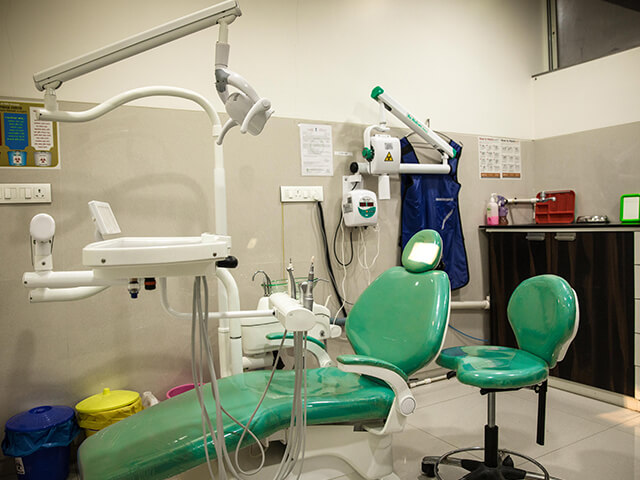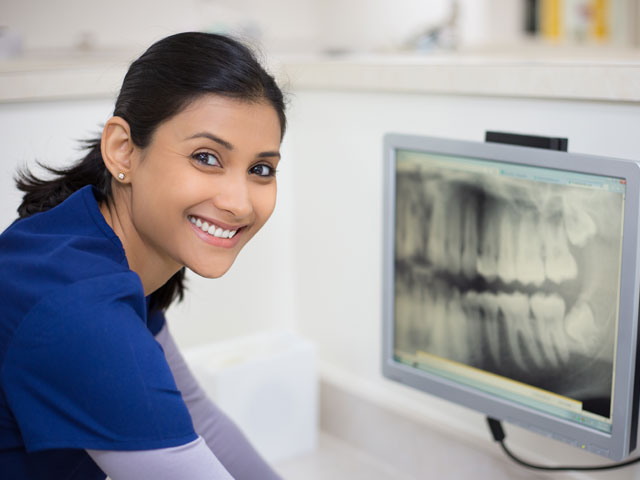Oral & Maxillofacial Unit in Talegaon
- Home
- Oral & Maxillofacial Unit in Talegaon



Oral & Maxillofacial Unit at TGH Onco-Life Cancer Centre
Rebuilding Lives After Head & Neck Cancer, One Smile at a Time
In the Indian subcontinent, head and neck cancer is one of the most common forms of cancer — and unfortunately, it has one of the biggest impacts on a patient’s appearance, speech, eating, and overall quality of life.
At TGH Onco-Life Cancer Centre, we understand these challenges deeply. That’s why we’ve established a dedicated Oral & Maxillofacial Unit that focuses not just on treating the disease — but also on healing, rebuilding, and restoring normal life after cancer.
What is Oral & Maxillofacial Care?
Oral and Maxillofacial care involves the treatment and rehabilitation of the mouth, jaw, face, and neck, especially in patients affected by:
- Oral cancer
- Jaw tumors
- Post-surgical facial changes
- Dental damage due to cancer therapy
- Functional issues related to speech, chewing, or facial movement
It is a specialized field that combines dental care, surgical support, and facial reconstruction, with a focus on restoring comfort, appearance, and self-confidence.
Why This Unit is So Important
Surgery and radiation — although life-saving — can leave behind:
- Facial deformities
- Missing teeth or damaged jawbones
- Difficulty in chewing or speaking
- Dry mouth or oral infections from radiation
Our Oral & Maxillofacial Department ensures that no patient is left behind after cancer treatment. We help them:
- Regain basic functions like eating and speaking
- Restore facial structure and aesthetics
- Feel confident in social and daily life again
Our Services Include:
1. Pre-Radiation Dental Care
- Removal of unhealthy teeth before radiation begins
- Customized dental care plans to reduce side effects of radiation
- Mouth guards, oral hygiene advice, and infection prevention
2. Post-Surgery Oral Rehabilitation
- Jaw reconstruction support
- Fitting of dental prosthetics or implants for missing teeth
- Restoring facial balance and bite functionality
3. Routine Dental Services
- Teeth cleaning, fillings, root canals
- Oral hygiene checks for cancer patients and general patients alike
4. Awareness and Outreach Activities
Through this department, we also conduct:
- Free oral cancer screening camps
- Tobacco cessation counselling
- Educational sessions on oral hygiene and early warning signs of oral cancer
Infrastructure & Expertise You Can Trust
Our unit is equipped with:
- Modern dental chairs and surgical equipment
- Trained maxillofacial surgeons and dental experts
- Digital X-ray and sterilization units
- Prosthodontic support for reconstruction
maintain strict infection control protocols, especially for immunocompromised cancer patients.
Most Popular Questions
Satara – Oral & Maxillofacial Surgery FAQs
1. Who is the best maxillofacial surgeon in Pune?
Dr. Prasad Kaware is widely recognized for his skill and experience in oral and maxillofacial surgery. With over 18 years of practice including international experience as Head of Dentistry in Saudi Arabia, he now provides full-time expert care at Onco-Life Cancer Centre.
2. Can a maxillofacial surgeon also be a plastic or cosmetic surgeon?
Yes, oral and maxillofacial surgeons are specially trained to perform cosmetic and reconstructive surgeries of the face, jaw, mouth, and neck, especially for patients affected by oral cancer, trauma, or facial deformities.
3. Can a maxillofacial surgeon do rhinoplasty (nose reshaping)?
No, rhinoplasty is usually performed by an ENT (Ear, Nose, Throat) specialist or a plastic surgeon trained specifically in nasal surgery.
4. What are the most common causes of mouth cancer?
The leading causes include:
- Tobacco in any form (smoking, gutkha, pan masala, betel nut)
- Alcohol use
- Chronic irritation from sharp teeth or ill-fitting dentures
- Poor oral hygiene
- Family history (hereditary factors)
- HPV infection in some cases
5. What is the cost of mouth cancer treatment in India?
The cost varies depending on:
- Stage and type of cancer
- Treatment required (surgery, radiation, chemotherapy, etc.)
- Hospital facilities and duration of treatment
At Onco-Life Cancer Centre, we offer affordable treatment plans, and cashless insurance, and support for government schemes is available.
6. Is oral cancer treatable if detected early?
Yes, if detected early, oral cancer can be treated effectively, often with surgery and radiation. Early detection increases the chance of a complete cure and better quality of life.
7. What are the signs of mouth cancer I should not ignore?
Be alert to:
- Non-healing ulcers in the mouth
- Lumps or thick patches inside the mouth
- Pain while chewing or swallowing
- Red or white patches in the oral cavity
- Persistent bad breath or bleeding
8. What is the role of a maxillofacial surgeon in cancer care?
They perform surgeries to remove tumors, reconstruct the face or jaw, restore oral function, and improve appearance and quality of life after cancer surgery.
9. How long is the recovery after oral cancer surgery?
Recovery depends on the type of surgery performed. Basic procedures may take a few days, while complex reconstructive surgeries may need a few weeks. Our team offers rehabilitation and dental prosthesis support after surgery.
10. Can oral cancer recur after treatment?
Yes, like many cancers, oral cancer can recur if not monitored properly. That’s why regular follow-ups and screenings are crucial even after successful treatment.
11. How can I prevent mouth cancer?
- Quit tobacco and alcohol
- Maintain good oral hygiene
- Get regular dental check-ups
- Address sharp teeth or ill-fitting dentures
- Eat a healthy diet and stay hydrated
- Avoid prolonged sun exposure to the lips
12. Can I eat normally after maxillofacial surgery?
Depending on the surgery, you may need to follow a soft or liquid diet initially. Our dietitians and doctors will guide you to resume normal eating comfortably.
13. Is mouth cancer painful?
In early stages, mouth cancer may not be painful, which is why people often ignore it. As it progresses, it may cause pain, difficulty in swallowing, or speaking, and visible sores.
14. Will my appearance change after oral cancer surgery?
Modern surgical methods at Onco-Life Cancer Centre focus on preserving appearance and function. If needed, reconstructive or cosmetic surgery is offered to restore aesthetics and confidence.
15. Does Onco-Life Cancer Centre offer oral cancer screening?
Yes. We conduct regular oral cancer screening camps, awareness drives, and tobacco cessation programs to help with early detection and prevention.
